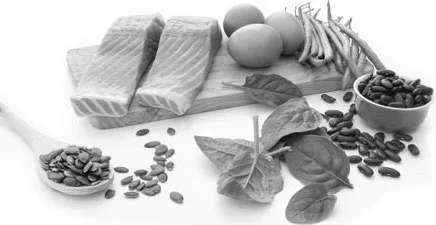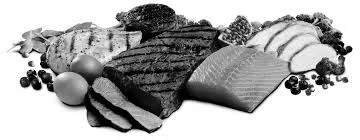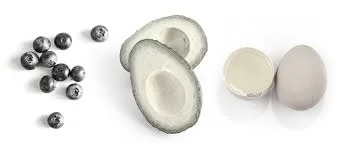Strategies for Competitions
The weather in the U.K can have a significant impact on the results of a competition, good or bad. When the weather isn’t preferable, whether it be raining, windy or too cold or hot, who wins the competition can often depend on who is the most prepared for the conditions. Here’s our advice on how to deal with the conditions you may face when competing.
Rain and Cold Weather
One of these two alone can significantly impact your competition and when they come as a pair, you certainly need to be prepared. A lot of what you need to deal with the rain and cold weather is covered in our previous post ‘Pole Vaulter’s Kit Bag’ and being able to deal with these conditions often comes down to planning. Your main priorities are staying warm and dry and ensuring that your grip on the pole is dry. When the conditions are poor then we would suggest giving yourself an easy start point. It’s always worth remembering that it doesn’t matter where you start in the competition, but where you finish, and how you get to the finish can often dictate how far you go.
Your first priority is to make sure you are in a position to clear a bar; this alone may be enough to win you a medal or even the competition. Whether you start the competition from a shorter run, with an easier pole, or a lower grip, make sure you’re ready to clear a bar on your first attempt. Where you go from this point can vary. The conditions may improve and you can then go back to your full run, or you may choose to continue from the shorter run if you are being successful. If you’re at a championships, it may also be worth keeping a note of how your competitors are getting on in the poor conditions.
One competition where the conditions were certainly not preferable was the women’s pole vault at the 2014 Commonwealth Games in Glasgow. There were 12 competitors, 4 of which cleared a bar and subsequently won a medal as the bronze medal was shared. One partnership who dealt with these conditions very well were athlete Sally Peake and coach Scott Simpson. Finishing with a vault of 4.25m and winning the silver medal, Sally finished 45cm ahead of the two bronze medallists; her ranking going into the competition would have put her fourth. Sally’s incredible performance in terrible conditions on that evening was down to planning. Coach Scott Simpson had the following to say:
"What happened that night did not happen by chance… it was not luck… it was prepared for thoroughly… everyone knew the weather was coming."
Anyone wanting to watch a 10 minute video of the competition can do so here:
Wind
The wind can have potentially both a positive and a negative effect when competing. Similarly to the decisions you have to make in cold and wet weather, the decisions you make when factoring in the wind should always be around how you can produce your best performance on the day. If the wind isn’t favourable and is either a head or cross wind, then you need to start the competition in a position ready to clear the bar. It’s far easier to deal with the wind from a shorter run and using smaller pole than it is from a longer run on bigger poles.
On a more positive note, if you arrive at a competition where there is a big tail wind, then you need to be prepared for the potential extra speed it may give you on the run up. There are a couple of options with a tail wind. Firstly you could take full advantage of the wind and if you have packed the correct poles, then using a bigger pole than normal may help you vault higher. The second option, if you are blowing through the biggest pole you have, is to shorten your run up by a certain number of strides. Again this is about maximising your performance on the day. So if coming in two or four strides means that instead of blowing through the bar every time you’re able to clear a bar, then great!
Hot Weather
The previous three factors can have an obvious potential negative impact on performance, however the one that can catch us most off guard, probably due to least expecting it, is the hot weather. Aside from ensuring you have enough sun cream on - we’d suggest asking someone else to apply this for you! - staying in the shade, and providing the wind is favourable, the sun shouldn’t pose too many problems. The biggest problem the sun can cause is when it comes to your nutrition and hydration. Here’s some advice from our partner nutritionist Henrietta Paxton:
Food and drink intake during competitions can be tricky at the best of times, and whilst we may love competing in beautiful sunny and hot weather, staying hydrated becomes even more important. Becoming dehydrated does appear to effect muscular power, through negative impacts on the neuromuscular system, also affecting concentration during the event and effective recovery afterwards. Therefore, staying hydrated could positively enhance your performance through attenuating these negative factors. First and most importantly, the most effective way to avoid the pitfalls of dehydration is prevention - start the competition in a fully hydrated state. The easiest way to make sure this is the case is to keep an eye on the colour of your urine, it should be very pale if not clear!
During the competition regularly sip on a drink, water should be enough to keep you hydrated in a pole vault competition, although on particularly hot/long day’s coconut water is a great idea due to its mineral content (potassium) which maintains electrolyte balance that could be lost through sweat. Alternatively, mixing a pack of rehydration salts (like dioralyte) with your water will have the same effect.
All the bodie's resources are all geared towards muscular performance during competition, and not at digestion, so anything you eat during the competition needs to be easily digestible. Bananas are an ideal food for this reason as they are easy to digest, quickly releasing their stored sugars and potassium to support energy and electrolyte balance. Another option is to make yourself a smoothie using coconut water that you can sip during the competition with your water. This also allows some protein to be ingested to support muscular recovery during the competition, again without the risk of digestive discomfort as the ingredients are already blended and most of the “digestion” is taken care of, allowing nutrients to be quickly delivered where they are needed. I like mixing ½ scoop organic whey protein, one banana, handful raspberries, tbsp maple syrup with 300ml coconut water. You could even make this the day before and freeze it so it gradually melts during the day, keeping you cool, nourished and hydrated so you can perform at your best!
We hope you found the following advice helpful and that it helps your perform as best you can on any given day this season!





